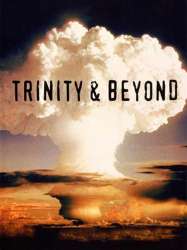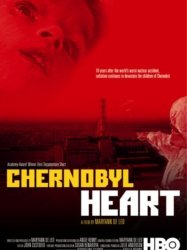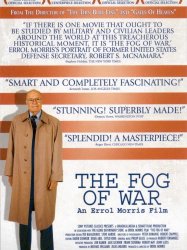Rokkasho Rhapsody is a film of genre Documentary directed by Hitomi Kamanaka
Rokkasho Rhapsody (2006)

If you like this film, let us know!
Length 1h59
Directed by Hitomi Kamanaka
Genres Documentary
Themes Environmental films, Documentary films about environmental issues, Documentary films about nuclear technology, Documentary films about technology
Rating63%










Rokkasho Rhapsody (六ヶ所村ラプソディー, Rokkashomura rapusodī, also sometimes called in English Rokkashomura Rhapsody) is a Japanese documentary directed by Hitomi Kamanaka and released in 2006. It is the second in Kamanaka's trilogy of films on the problems of nuclear power and radiation, preceded by Hibakusha at the End of the World (also known as Radiation: A Slow Death) and followed by Ashes to Honey.
Comments
Leave comment :
Suggestions of similar film to Rokkasho Rhapsody
There are 1 films with the same director, 8974 with the same cinematographic genres, 1033 films with the same themes (including 62 films with the same 4 themes than Rokkasho Rhapsody), to have finally 70 suggestions of similar films.If you liked Rokkasho Rhapsody, you will probably like those similar films :

Ashes to Honey (2010)
, 1h56Directed by Hitomi Kamanaka
Genres Documentary
Themes Environmental films, Documentary films about environmental issues, Documentary films about nuclear technology, Documentary films about technology
 , 1h33
, 1h33Origin USA
Genres War, Documentary, Historical
Themes Environmental films, Documentary films about environmental issues, Documentary films about war, Documentary films about historical events, Documentary films about nuclear technology, Documentary films about technology
Actors William Shatner, Reed Hadley, Marilyn Monroe
Rating78%





"Trinity and Beyond" est un documentaire présentant l'histoire du développement des armes nucléaires et de leurs essais couvrant la période 1945-1963. Le film, accompagné de la voix de William Shatner et d'une musique originale exécutée par l'Orchestre Symphonique de Moscou, révèle des images appartenant au gouvernement.

The Return of Navajo Boy (2000)
, 52minutesOrigin USA
Genres Documentary
Themes Environmental films, Documentary films about business, Documentary films about law, Documentary films about environmental issues, Documentary films about nuclear technology, Documentaire sur une personnalité, Documentary films about technology
Rating26%






Atomic Ed & the Black Hole (2001)
, 40minutesDirected by Ellen Spiro
Genres Documentary
Themes Environmental films, Documentary films about environmental issues, Documentary films about war, Documentary films about historical events, Documentary films about nuclear technology, Documentary films about technology

Chernobyl Heart (2003)
, 39minutesOrigin USA
Genres Documentary
Themes Environmental films, Documentary films about environmental issues, Documentary films about historical events, Documentary films about nuclear technology, Documentary films about health care, Documentary films about technology, Disaster films
Rating77%





La réalisatrice voyage à travers l'Ukraine et la Biélorussie et observe les effets de la catastrophe nucléaire de Tchernobyl. De nombreux enfants souffrent de problèmes cardiaques, ainsi que de sévères problèmes liés aux radiations.

The Fog of War (2003)
, 1h35Directed by Errol Morris
Origin USA
Genres War, Documentary, Historical
Themes Environmental films, Documentary films about environmental issues, Documentary films about war, Documentary films about historical events, Documentary films about nuclear technology, Documentary films about technology, Political films
Actors Errol Morris
Rating80%





The overall plot of the film focuses on the interviews of former Secretary of defense, Robert McNamara, who was interviewed for about 20 hours by the director of the documentary, Errol Morris, through a special device called the "Interrotron" which projects images of interviewer and interviewee on two-way mirrors in front of their respective cameras so each appears to be talking directly to the other. Use of this device is intended to convey actual interaction with each other and direct eye contact with the viewer.

Gerboise bleue (2009)
, 1h30Origin Algerie
Genres Drama, Documentary
Themes Environmental films, Documentary films about environmental issues, Documentary films about war, Documentary films about historical events, Documentary films about nuclear technology, Documentary films about technology
Between 1960 and 1966, France carried out four atmospheric nuclear tests and another thirteen underground ones to the south of Reggane (Algerian Sahara). The first was called Blue Jerboa and was four times as powerful as the bomb dropped on Hiroshima. For the first time, French and Tuareg survivors speak of their fight to have their illnesses recognized as such, and reveal in what the conditions the tests were carried out. Fifty years later, the French Army still refuses to acknowledge its responsibility towards the populations exposed to the radiation.

Silent Storm (2004)
, 1h30Directed by Peter Butt
Genres Documentary
Themes Environmental films, Documentary films about environmental issues, Documentary films about war, Documentary films about historical events, Documentary films about nuclear technology, Documentary films about technology
Actors Bille Brown
Rating73%





From 1957 to 1978, scientists secretly removed bone samples from over 21,000 dead Australians as they searched for evidence of the deadly poison, Strontium 90 - a by-product of nuclear testing. Silent Storm reveals the story behind this astonishing case of officially sanctioned 'body-snatching'. Set against a backdrop of the Cold War, the saga follows celebrated scientist, Hedley Marston, as he attempts to blow the whistle on radioactive contamination and challenge official claims that British atomic tests posed no threat to the Australian people. Marston's findings are not only disputed, he is targeted as 'a scientist of counter-espionage interest'.

Original Child Bomb (2004)
, 57minutesGenres Documentary
Themes Environmental films, Seafaring films, Transport films, Aviation films, Documentary films about environmental issues, Documentary films about war, Documentary films about historical events, Documentary films about nuclear technology, Documentary films about technology, Political films, Documentary films about World War II
Rating68%





Original Child Bomb begins with a recreation of the dropping of Little Boy from the perspective of Hiroshima's residents. It is joined with both historical and contemporary footage and overlaid with various voice-overs. The documentary moves on to offer the accounts of several Japanese witnesses of the atomic bombing destruction.

Hiroshima (1995)
, 3h10Directed by Roger Spottiswoode, Koreyoshi Kurahara, Hideo Sekigawa
Origin Canada
Genres Drama, Documentary
Themes Environmental films, Seafaring films, Transport films, Aviation films, Documentary films about environmental issues, Documentary films about war, Documentary films about historical events, Documentary films about nuclear technology, Documentary films about technology, Political films, Documentary films about World War II
Actors Eiji Okada, Kenneth Welsh, Ken Jenkins, Yumeji Tsukioka, Tatsuo Matsumura, Wesley Addy
Rating77%





The film opens in April 1945 with the death of Franklin Roosevelt and the succession of Harry Truman to the presidency. In Europe, the Germans are close to surrender, but in the Pacific the bloody battle for Okinawa is still underway and an invasion of the Japanese home islands is not foreseen until the autumn. American battle casualties have almost reached 900,000, with Japanese casualties at 1.1 million, and some 8 million Asian civilians have died in the war that began with Japan's invasion of Manchuria in 1931.
 Connection
Connection